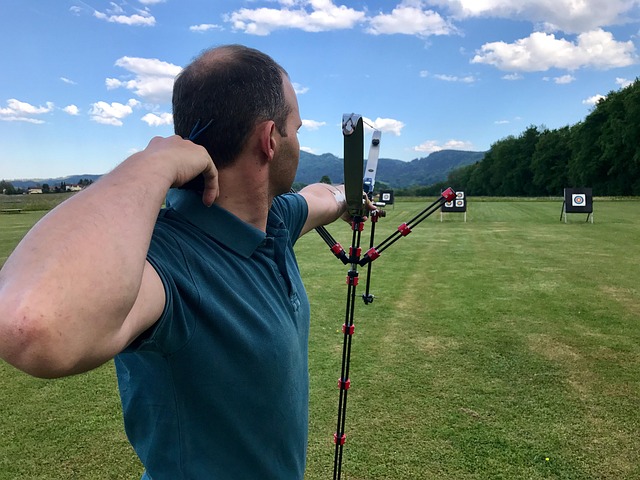Sexual assault lawyers in Seattle, WA are integral to managing sexually violent predators in King County through civil commitment laws. This alternative to criminal prosecution focuses on public safety and offender rehabilitation. The process involves a petition, court hearing, legal arguments, and a judge's decision. Both accused individuals and families have rights, requiring guidance from experienced sexual assault lawyers. While successful cases have been achieved, challenges include complex procedures and resource limitations. Lawyers play a vital role in ensuring fair commitment proceedings for all involved.
In King County, Washington, the civil commitment of sexually violent predators (SVPs) is a critical aspect of public safety. This complex legal process involves understanding and applying specific laws aimed at protecting communities from individuals who pose a high risk of reoffending. A sexual assault lawyer in Seattle, WA, plays a pivotal role in navigating these cases, ensuring the rights of both the accused and victims are upheld. From petitioning to court hearings, this article delves into the intricacies of SVP civil commitment, highlighting success stories while addressing challenges faced in King County.
Understanding Civil Commitment Laws in King County

In King County, civil commitment laws play a crucial role in managing sexually violent predators. This process allows for their detention beyond the traditional criminal justice system’s reach, focusing on public safety and rehabilitation. A sexual assault lawyer in Seattle, WA, can guide individuals who are under threat of or currently facing civil commitment proceedings.
These laws enable victims and the community to have a say in the long-term housing of predators through civil lawsuits. This approach is distinct from criminal prosecution, offering a more nuanced and potentially longer-lasting solution to address the risks posed by sexually violent offenders.
Who Qualifies for Sex Offender Civil Commitment?

In King County, sexual assault lawyer Seattle WA plays a crucial role in understanding and navigating the complex legal process surrounding civil commitment for sexually violent predators. This process is designed to protect communities by ensuring that individuals who have committed sexual offenses and pose a risk to public safety are properly managed and treated. To qualify for civil commitment, an individual must be found to meet specific criteria set forth by state law. Typically, this includes those convicted of serious sexual crimes and deemed to still pose a danger to society despite completing their prison sentences.
The assessment process involves comprehensive evaluations by mental health professionals to determine the individual’s risk level and suitability for civil commitment. Factors considered include psychological assessments, historical behavior patterns, and potential for rehabilitation. A sexual assault lawyer Seattle WA can guide clients through this intricate legal and clinical evaluation, ensuring their rights are protected and that all relevant evidence is presented accurately.
The Process: From Petition to Court Hearing

In King County, the civil commitment process for sexually violent predators involves a multifaceted journey, guided by legal experts like a sexual assault lawyer in Seattle, WA. It begins with a petition filed by the county, alleging that an individual poses a high risk of sexual violence and is suitable for civil commitment. This document outlines the basis for the request, including evidence and expert evaluations. Once filed, the court schedules a hearing, providing the accused with an opportunity to contest the allegations.
At the hearing, both sides present their arguments and evidence. A sexual assault lawyer in Seattle, WA, plays a pivotal role here, advocating for their client’s rights while also presenting mitigating factors and challenging the prosecution’s case. The judge, after carefully considering all information, makes a decision, either granting or denying the petition, ultimately determining whether the individual will remain under civil commitment.
Rights of Accused and Families During Commitment

In King County, the civil commitment process for sexually violent predators is a complex legal procedure, and it’s crucial to understand the rights of both the accused and their families during this time. Accused individuals have the right to legal counsel, ensuring they are represented by a sexual assault lawyer in Seattle, WA, who can guide them through the legal system. This includes the right to challenge the commitment petition and provide evidence to support their case.
Family members of the accused also possess certain rights and protections. They can participate in the proceedings, offer testimony, and seek legal advice regarding their roles and responsibilities. It’s essential for families to be aware of their options and to consult with experienced professionals who can help them navigate this challenging situation. A sexual assault lawyer in Seattle, WA, can provide invaluable support, ensuring that both the accused and their families understand their rights and are treated fairly throughout the civil commitment process.
Success Stories and Challenges in King County Cases

In King County, there have been both encouraging success stories and significant challenges in civil commitment cases involving sexually violent predators. Success stories often emerge from cases where skilled sexual assault lawyers in Seattle, WA, play pivotal roles. These attorneys utilize extensive legal knowledge and advocacy to ensure that individuals deemed a risk to society due to sexual violence receive the treatment and care they need. Through robust legal representation, victims can find closure and safety, while offenders are held accountable under the law.
However, challenges remain. Complex legal procedures, coupled with the sensitive nature of these cases, demand meticulous attention to detail. King County’s judicial system faces the daunting task of balancing public safety with individual rights during commitment proceedings. Moreover, securing adequate resources for long-term treatment and rehabilitation programs is an ongoing struggle, impacting outcomes for both victims and offenders. Despite these hurdles, proactive efforts by legal professionals and support systems continue to shape positive outcomes in the civil commitment process.





